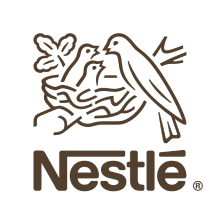
Your Résumé – What to Keep and What to Nix
One-page résumés are taking a back seat to the idea that it's a best practice to include everything relevant from your educational and professional experience, even if that means you're floating onto page two or three. So if you’re revamping your résumé, or crafting one for the first time, here are some tips on what to keep and what to nix.
The Summary Statement
Regardless of your professional level or industry, having a Summary Statement at the top of your résumé (underneath your name and contact information) is an effective way to concisely describe who you are and your next-step career aspirations. It's common to also call this an "Objective Statement" detailing why you’re interested in the position in which you’re applying for. Take it from us—if you're applying for the job, the recruiter already knows you're interested. Therefore, use this as a short paragraph to paint a well-rounded picture of you: what professional level you are, what makes you a good fit for the position or the company, and what makes you rise above the rest in this very competitive job market.
Your Professional Experience
The real "meat" of your résumé are the bullets within the Professional Experience section that truly articulate your story. If you're searching for that first job out of college, this is the place to list your internship/fellowship experience first, followed by select academic clubs, honors societies, and relevant coursework or technologies. These are likely your most recent affiliations that will yield transferrable skills. However, if you're searching for your third or fourth job, your experience from college becomes outdated and irrelevant. Therefore, nix it!
When listing your experience, short bullet points will allow the interviewer to quickly get a sense of your previous and/or current responsibilities. Nix the conversation fillers and extra verbiage that turn each bullet point into a long sentence. These can quickly become a laundry list of duties and tasks completed within each role when they should actually be a list of accomplishments. Ask yourself: what are/were the overarching results of each of my day-to-day tasks? How do/did I impact the bottom line? Those two questions should be reflected within each bullet point.
Skills
We all have skills. Many of us have a lot of them. But how many of your skills are relevant to the role in which you're applying for? Which ones are key differentiators between you and other candidates interviewing for the same role? This section should be a short and mighty one listing unique skills and proficiencies that ensure the recruiter you're an asset they can't live without. If you’re applying for a job that’s more technical, like digital marketing, IS/IT, engineering, or alike, make sure to list out the proficiencies you have in certain tools and systems—this is how recruiters can (at a glance) understand if you have the tech skills it takes to proceed further throughout the process.
Looking for more insights and tips from our recruiters to make you a stronger candidate? Continue to follow the "Career Tips" section of our blog and be sure to connect with us on Facebook, Twitter, and LinkedIn for related articles.




